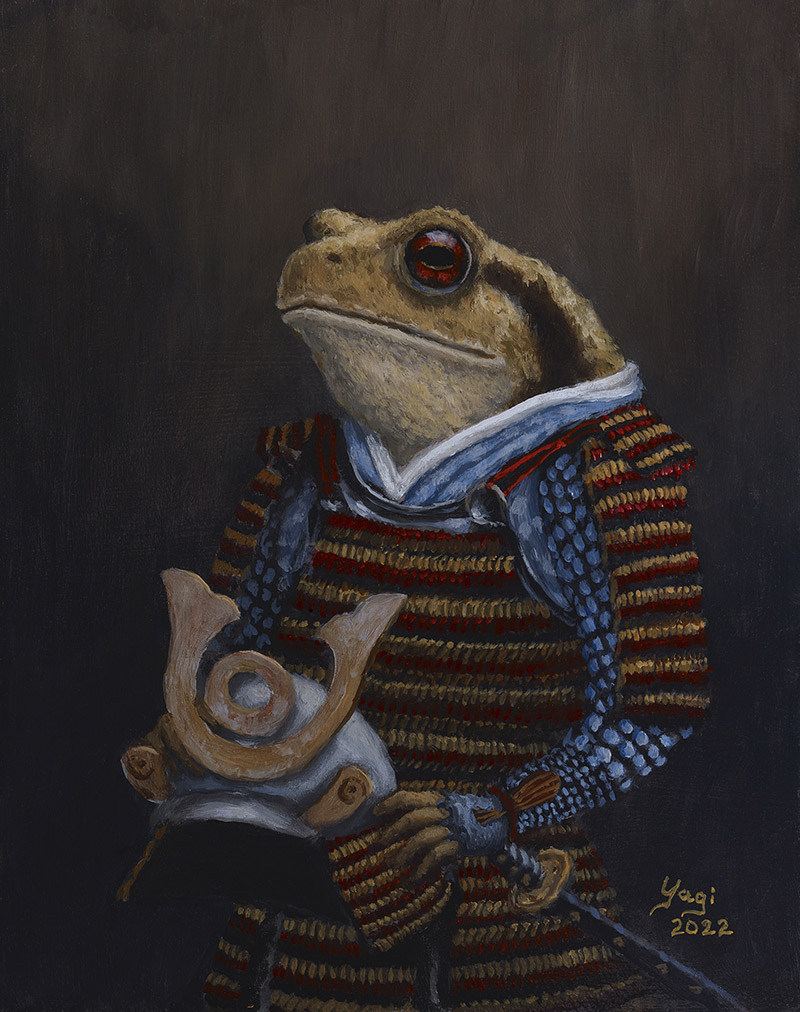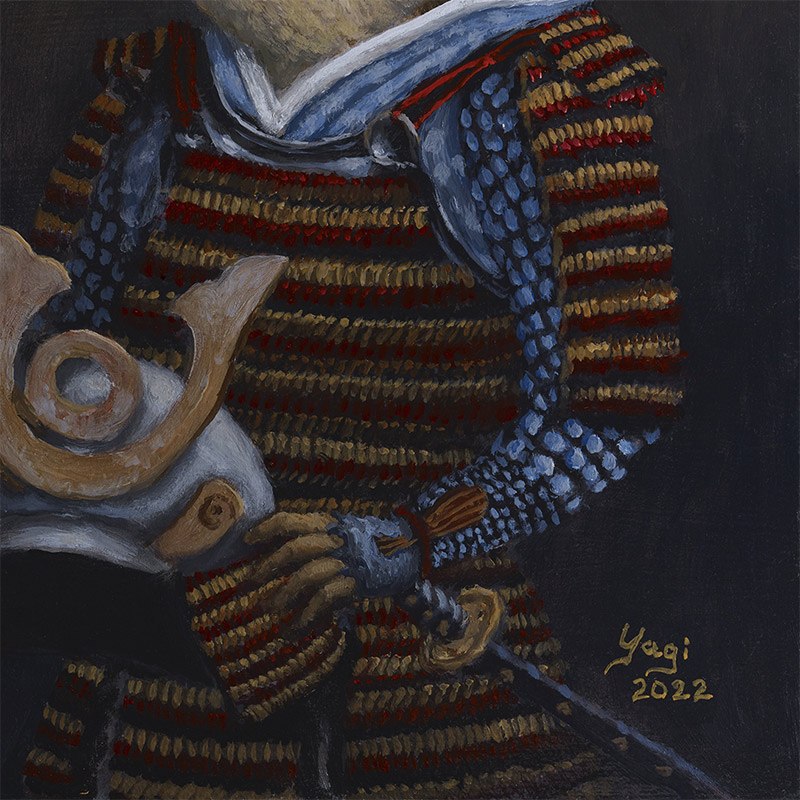Description
‘Samurai Toad’ by Sandra Yagi
Artist: Sandra Yagi
Title: ‘Samurai Toad’
Medium: Oil on panel
Dimensions: 10″ x 8″
Framing: Framed
Year of Creation: 2022
About the Artist:
(Artist Bio)
Sandra Yagi is a painter who lives and works in San Francisco, California. She is interested in the intersection between science and art, using themes of anatomy, genetic manipulation, evolution, and medical oddities as tools in the creation of intricate, small and medium scale paintings in traditional styles. These works depict strange worlds where flesh is malleable, skeletons of conjoined twins play, flayed simians invade the historical canons of Western art, and small, delicate, genetically hybrid creatures satisfy unusual curiosities and symbolize moral conundrums.
She was raised in suburban Denver Colorado, and from an early age she loved science (especially biology) and drawing. Yagi’s parents instilled in her an ethics of getting a “useful” education because of their concern for monetary and domestic stability—a result of their internment with other Japanese-Americans during WWII. Yagi therefore put art aside, obtained a Masters in Business Administration, and worked in the corporate world, where she put in 27 years at major financial institutions. However, due to the pent-up need to create, she took up drawing and painting again at age 32, while still working in finance. She left the corporate life behind for good in 2008 and became a full time artist. Her works are in numerous private collections, including those of Axl Rose, Ben Stiller, Miley Cyrus, Chris Vroom (Co-Founder of Artspace), Paul Ruscha, and film director Lee Unkrich (director of Toy
Story 3).
(Artist Statement)
Science, zoology, human folly and an obsessive curiosity for the macabre provide the fuel for my subject matter. My work is inspired by the natural sciences as well as by the traditional drawing and painting techniques of the old masters, including anatomical studies by artists such as Andreas Vesalius and Bernhard Siegfried Albinus. My recent paintings incorporate anatomical imagery to explore the human psychological condition and humanity’s affect on the natural world. Cutaway skulls are used to portray our basic human drives and the thin veneer of humanity overlaying our animal nature. Conjoined twin skeletons contrast figures with a natural deformity undertaking great feats of athleticism and grace. Hybrid creatures result from the use of art and fantasy to play with the principles of genetics and evolution.



